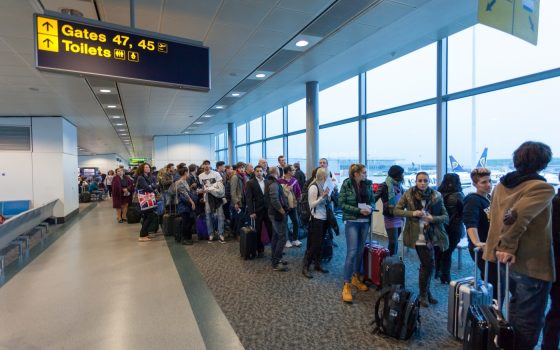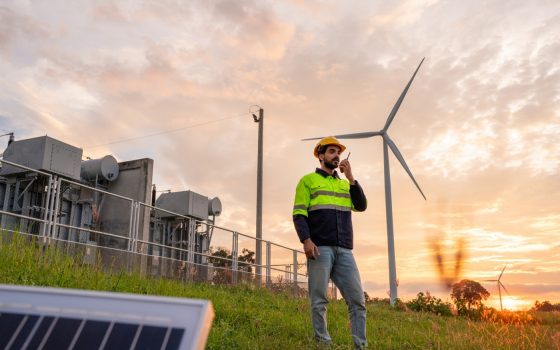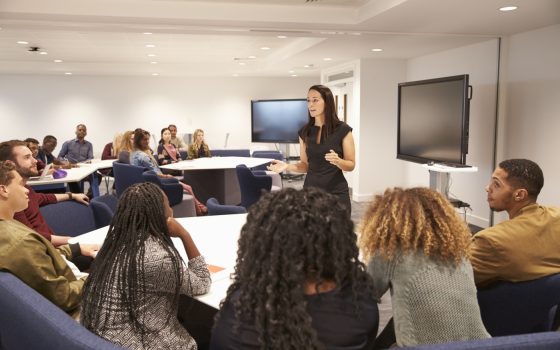The turning tide
As we square up to the climate emergency, politicians are starting to ruminate on how to get the public on board with the changes that need to happen. Here's where the public are at at.
15 November 2021
This is an article from the fourth issue of the New Economics Zine. You can read the full issue here.
Last month the government released its Net Zero Strategy – the long-awaited plan for reducing the UK’s emissions and tackling the climate crisis. The strategy talks of the government’s intention to “go with the grain of existing behaviour and trends” when tackling the climate crisis – which is as shocking as it is overlooked. Imagine, for a moment, that this had been the government’s pandemic response rather than imposing multiple lockdowns. Such a response would have provoked outrage and likely led to a swift change in policy or disaster, or both.
Chris Stark, the head of the government’s independent Climate Change Committee (CCC), pointed to it as a significant gap and weakness in the strategy, rightly stating that it was “more of a design feature” than an omission. He went on to warn, somewhat understatedly, that such an approach made ‘the task bigger and…higher risk’.
It’s worth pausing for a moment to reflect on why, given the substantial threat posed by the climate crisis to our way of life and the enormous task that confronts the UK and countries around the world, the government would make it any harder or put success at risk.
One answer that’s sometimes proffered is that the public wouldn’t wear it — they’re simply not up for such shifts in behaviour, or so the argument goes. But this argument is just not borne out by the evidence. Recent surveys have shown that 80% of the UK public are concerned about climate change. Crucially, this concern is being translated into a recognition that things must change – 80% of the people also believe the way we live our lives will need to change.
Moreover, the public show strong support for making changes themselves – 84% of British respondents to a recent survey by the Pew Institute said that they “were willing to make either some or a lot of changes to their lifestyle” to reduce the effects of climate change. Such sentiment is shared by both left- and right-wing participants (87% and 84% respectively). The polling aside, the recent experience of the pandemic ought to provide useful instruction on what the public are willing to do in the face of a collective threat to our health and security.
“…the pandemic ought to provide useful instruction on what the public are willing to do in the face of a collective threat to our health and security”
This is not to say that the government sees no role for the public. The Net Zero Strategy highlights the need for communication, trusted advice, and opportunities for the public to participate in and shape the government’s climate plans. Yet the truth is the UK government has thus far done very little to engage the public or encourage participation – let alone to accelerate behaviour change that it has set itself so clearly against.
Involving the public in the transition will be crucial, not least because the action needed to reduce emissions and protect the natural world is about to affect our daily lives more than ever. The progress the UK has made so far on reducing emissions has largely taken place in the background. The greatest strides in switching to renewable energy sources has affected those in the energy sector but it has not made a material difference to many beyond it. The pressing changes that must come next: what we eat, how we get around, and how we heat our homes, will be felt much more keenly by the general public. If we don’t do this right, then we risk scuppering ourselves – people won’t do it and they’ll vote against it.
The gilet jaunes protests in France, triggered by president Macron’s proposals to increase fuel tax, show the risk of public anger and resistance when policies are not perceived to fairly account for the challenges people face in their day-to-day lives.
Yet the gilet jaunes have gone on to campaign for green measures such as mandatory building insulation. These protests were not a rejection of environmental issues: they were about public trust, and how this is lost when policies seem disconnected from people’s everyday priorities.
Here too we’ve seen a number of protests by those frustrated at a lack of action or corporate greenwashing, including the youth climate strikers who occupied the Science Museum, Insulate Britain and Extinction Rebellion. There are also specifically targeted protests like Stop Cambo which is taking action against a newly proposed oil field in the North Sea and Paid to Pollute, a group taking the government to court over tax breaks for oil and gas companies. Some tactics are more popular than others but the protests are cutting through into the day-to-day, raising the profile of the issues and with that, the urgency.
Moreover, the scale of action needed to tackle the climate and nature crises is non-negotiable – there really is no negotiating with nature – but there are choices in where and when energy and investment is targeted. Involving the public in these decisions will lead to better, fairer outcomes. That means action must not only be about ‘taking the public with us’, but about doing it together – giving more power and resources to people, more ownership over decisions and of the assets and benefits that arise from the transition.
The Institute for Public Policy Research’s Environmental Justice Commission has run citizens’ juries across the UK in Tees Valley and County Durham, the South Wales Valleys, Thurrock in Essex, and Aberdeenshire. We heard from these communities that people want fairness to be put at the heart of tackling the climate and nature crises. In the South Wales Valleys we heard how people wanted to be able to live a good life without needing to own a car. In Thurrock we heard how the community want planning decisions to benefit nature. In Tees Valley and County Durham our jurors told us that a one-size-fits-all approach to policy making wasn’t good enough. In Aberdeenshire they argued that retraining costs for workers in carbon-intensive industries should not fall to those who can least afford them.
The commission put these jurors’ views at the heart of its work, and proposes that the governments of the UK put the same premium on the thoughts, experiences, and ideas of the public – the people without whom a fair transition just won’t happen. Local communities bring practical knowledge from all corners of society, and they want to be involved in shaping decisions that affect them. And when communities are involved, the decisions are fairer, the outcomes are better and public support longer lasting.
“Attempting to accelerate behavioural change amongst the public without also better communicating with, engaging, and involving them in decisions as well as giving them greater ownership over the assets that arise from the transition, is doomed to fail.”
To put this into practice the commission makes several recommendations. First is the proposal to guarantee that no climate and nature recovery plan should be created without public involvement. To enable this, it argues for the creation of a permanent citizens’ assembly to scrutinise the government’s progress and support ongoing policy development. It also calls for regional and local permanent citizens’ assemblies which would provide an efficient way of engaging the public in the response to the climate and nature crises alongside other topics.
Second, to respond better to local needs and improve the relationship between decision makers and the public, the commission calls for all parts of the UK to at least match Scotland’s commitment to allocate 1% of local government funding through participatory budgeting – a process which has been shown to increase people’s trust in local decision-makers, their sense of belonging to their community, and improve social determinants of health.
Third, the commission calls for the extension of community ownership so that local people have a stake in, and control over, the transition – for example, community-owned energy and nature assets. This includes a target for one third of new onshore renewables in England to be under community ownership by 2030.
Fourth, the commission also calls for a new ‘one stop shop’ called GreenGO – a unifying brand under which financial support and high-quality advice can be marketed to and accessed by the public. This scheme would ensure that the means to act are available to everyone and accessible on their high streets as well as online and via a dedicated phone line.
The other thing that runs like a thread through the commission’s work is the recognition that behavioural change isn’t just desirable but necessary, contrary to the view of the current government. The UK’s strategy, along with many other countries’, implicitly relies on technological solutions that are either unproven or non-existent. This simply won’t wash – the gamble is too big, the task too herculean. Consequently, the commission makes multiple recommendations on how to accelerate behavioural change in everything from our eating habits to the way we travel.
Hopes of a realisation within the current government that there is merit in working with the public to change behaviour were briefly revived when the government published a document on behavioural change alongside the Net Zero Strategy. In relation to aviation for example, the now deleted document said “developing interventions to reduce the environmental impact of aviation is critical, both through a technological and behavioural lenss”. However, hopes were quickly squashed when the document was removed and the government released a statement which said “this was an academic research paper, not government policy. We have no plans whatsoever to dictate consumer behaviour in this way.”
The government is right in one sense. Attempting to accelerate behaviour change amongst the public without also better communicating with, engaging, and involving them in decisions as well as giving them greater ownership over the assets that arise from the transition, is doomed to fail. But then only a government that has little intention of involving the public in the transition would see accelerating behaviour change as dictatorial.
Perhaps the answer isn’t to abandon the idea of behavioural change in favour of magical technologies, but is instead to bring the public in. The research – both ours and that of many others – suggests that the public aren’t raging against bolder change but instead have an appetite for it. Maybe it’s time for the government to stop worrying about whether it’s dictating to the public and to spend more time catching up with it.
Luke Murphy is head of IPPR’s Environmental Justice Commission and their energy, climate,
housing and infrastructure team.
Image: Cat Finnie
Topics Climate change Democracy & participation Environment Zine






